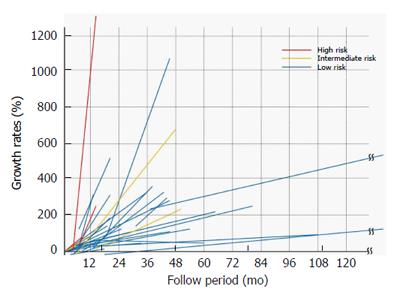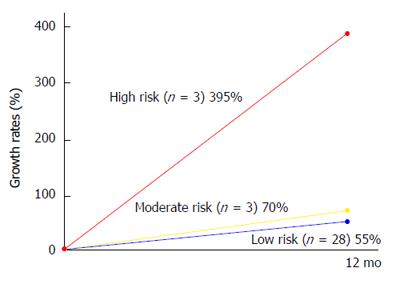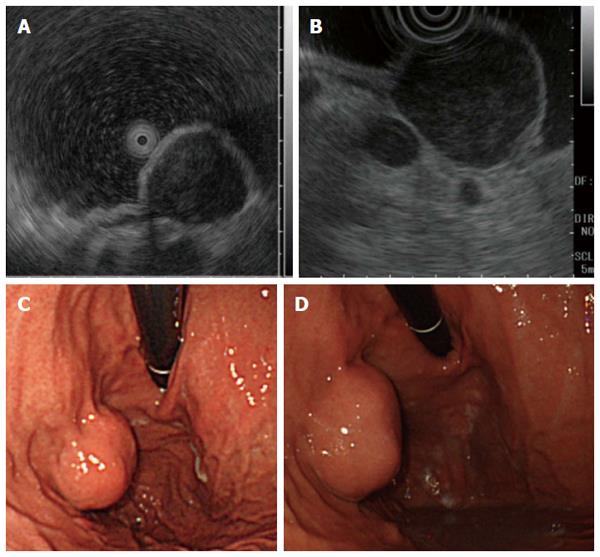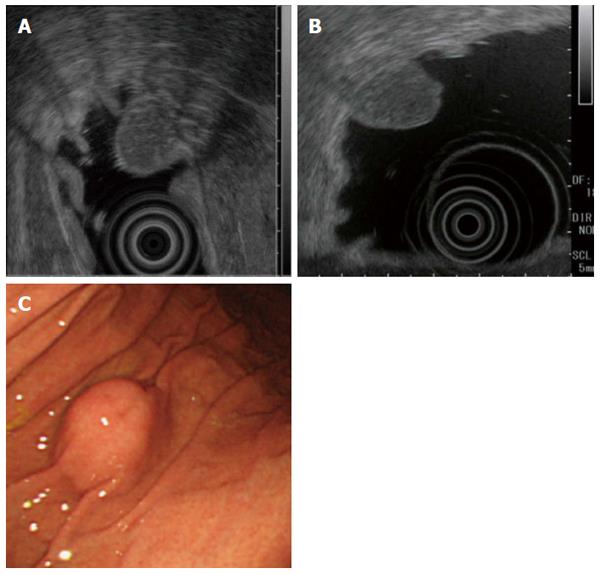Copyright
©The Author(s) 2016.
World J Gastroenterol. Dec 7, 2016; 22(45): 10015-10023
Published online Dec 7, 2016. doi: 10.3748/wjg.v22.i45.10015
Published online Dec 7, 2016. doi: 10.3748/wjg.v22.i45.10015
Figure 1 Growth rates of individual gastrointestinal submucosal tumors during follow-up.
Figure 2 Annual growth rates of gastrointestinal submucosal tumors.
Figure 3 Gastrointestinal submucosal tumors low grade: Doubling time is 17.
2 mo. A: EUS finding at baseline, tumor diameter is 22.0 mm; B: EUS finding at four years later, tumor diameter is 34.0 mm; C: Endoscopic finding at baseline; D: Endoscopic finding at four years later. There is almost no change in endoscopic findings in four years. EUS: Endoscopic ultrasound.
Figure 4 Gastrointestinal submucosal tumors high grade: Doubling time is 3.
0 mo. A: EUS finding at baseline, tumor diameter is 25.5 mm; B: EUS finding at 6 mo later, tumor diameter is 28 mm; C: EUS finding at 12 mo later, tumor diameter is 38.5 mm. There are remarkable changes in one year. EUS: Endoscopic ultrasound.
Figure 5 Ectopic pancreas.
A: EUS finding at baseline, tumor diameter is 15.5 mm; B: EUS finding at five years later; C: Endoscopic finding. Ectopic pancreas has no change in five years. EUS: Endoscopic ultrasound.
- Citation: Koizumi S, Kida M, Yamauchi H, Okuwaki K, Iwai T, Miyazawa S, Takezawa M, Imaizumi H, Koizumi W. Clinical implications of doubling time of gastrointestinal submucosal tumors. World J Gastroenterol 2016; 22(45): 10015-10023
- URL: https://www.wjgnet.com/1007-9327/full/v22/i45/10015.htm
- DOI: https://dx.doi.org/10.3748/wjg.v22.i45.10015













